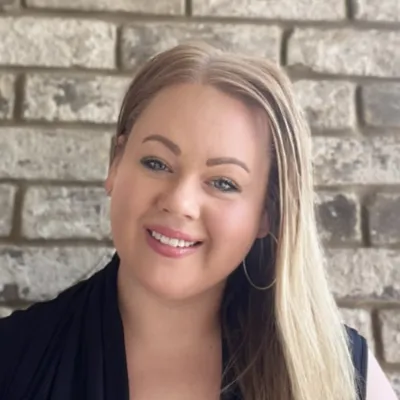If you’ve ever Googled this question at 2 a.m. with one hand while bouncing a fussy baby in the other… you’re not alone. The good news? Babies can learn to sleep longer stretches—and you can absolutely help them get there with the right strategies (and a little patience!).
Sign up to receive more tips for better sleep!
Let’s break it down, sleep consultant style.
First, what does “sleeping through the night” really mean?
Contrary to what Instagram might have you believe, “sleeping through the night” doesn’t mean 12 straight hours without a peep. For babies around 4–6 months and older (and with pediatrician clearance), it usually means sleeping 6–8 hour stretches with minimal or no help getting back to sleep.
And no, it doesn’t happen by magic (though it might feel magical when it does!).
Common Misconception: “Teething is why my baby wakes all night”
Let’s talk teeth. Teething can cause brief disruptions in sleep, especially if a tooth is actively breaking through. But chronic night waking? That’s usually not teething’s fault.
If your baby is waking frequently over weeks or months, it’s more likely tied to habits like being rocked or fed to sleep, an inconsistent schedule, or overtiredness—not their gums. Don’t let teething be the scapegoat that delays you from making helpful changes. (Also, per the AAP: skip the teething gels—many aren’t safe for infants.)
So, how do we help babies sleep longer?
Here are a few tried-and-true, evidence-backed tips I use with my clients:
Start with a solid bedtime routine.
Babies thrive on predictability. A 15–30 minute wind-down routine helps cue their brains (and bodies) that sleep is coming.
Watch the clock—but also your baby.
Most babies under one do best with an early bedtime—usually between 6:30–7:30 p.m. And if they’re rubbing their eyes or zoning out, that’s your cue!
Teach independent sleep skills.
This doesn’t mean letting your baby cry alone for hours (promise). It means gently guiding them to fall asleep in their crib without relying on rocking, feeding, or bouncing—skills they’ll carry into those longer night stretches.
Create a sleep-friendly space.
A dark, cool room with white noise can make a big difference. And of course—always follow the AAP safe sleep guidelines: baby on their back, in a crib or bassinet, with no loose blankets or bumpers.
Helping your baby sleep through the night isn’t about “training” them like a puppy. It’s about meeting a biological need: sleep. Just like eating and connection, sleep is essential—and babies (and parents!) do best when it’s prioritized with intention and support.
You don’t have to do it alone. If you’re ready to stop Googling and start sleeping, let’s work together on a plan that fits your baby and your family.
Need help? I offer personalized support to help your baby sleep longer stretches—and help you feel like yourself again.

